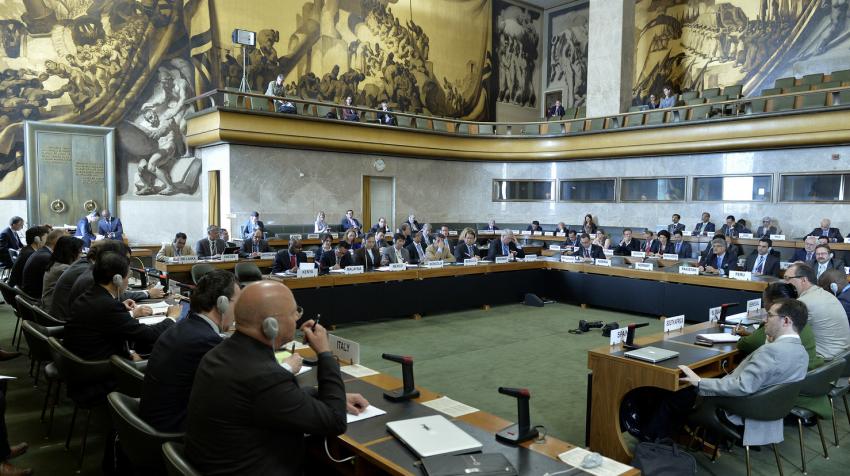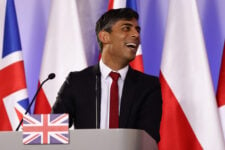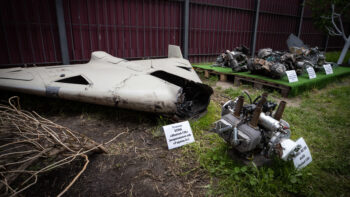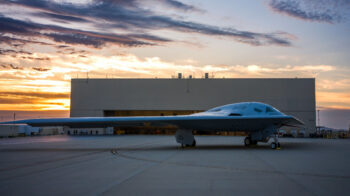
The Council Chamber in UN headquarters at the Palais des Nations in Geneva. (UN Photo/Jean-Marc Ferré)
WASHINGTON: Due to objections from Moscow, the first-ever UN meeting to consider norms for and potential constraints on military activities in space has been delayed. Originally scheduled to open in Geneva on Feb. 14 — Valentine’s Day in the US — the launch of the ground-breaking meeting now will not happen before early May.
According to diplomats and observers participating, Russia raised a litany of procedural complaints during the Feb. 7-9 organizational meeting to lay ground rules and set the agenda for the “Open Ended Working Group (OEWG) on Reducing Space Threats Through Norms, Rules and Principles of Responsible Behaviours.”
These included arguing that next week was simply too soon after the group’s Dec. 24 establishment by the General Assembly for national delegations to be properly prepared, government officials and observers said. Russia also raised questions about plans to hold two meetings each in 2022 and 2023, arguing that the Russian version of the OEWG’s agreed charter instead read two meetings only.
Moscow further picked a fight on the rules for the participation of civil society and commercial industry in the working group’s deliberations during the latter half of the meeting, public audio of which was accessed online by Breaking Defense. Those rules were spelled out in the OEWG’s charter agreed by the General Assembly, but Moscow and Cuba insisted on new limitations preventing representatives of non-governmental organizations (NGOs) from speaking or providing direct input.
That debate was left unresolved when the formal meeting adjourned to a private venue, after the clock ran out on interpretation services at the Palais de Nations and building management threatened to kill the lights on the diplomatic squabbling.
While the delay doesn’t necessarily derail the entire process, the cancellation of the meeting next week does create obstacles for diplomatic schedules, especially for countries with limited financial resources.
“This last-minute change places a significant stress and financial burden on national delegations and civil society organizations who have already made plans to be there in person,” said Jessica West, of the Canadian NGO Project Ploughshares. “And it’s yet another blow to arms control diplomacy and negotiations that have faced constant hurdles during the pandemic. Going forward, it’s essential to maintain emphasis on predictability, transparency and accessibility of international meetings and discussions.”
Secure World Foundation’s Victoria Samson made a valiant effort to find a silver lining. “This delay, while frustrating, may allow more time for preparation; that is, to get many countries up to speed on the issue and to allow for general exchanges so that the meeting can go straight to discussions,” she said. “Maybe.”
Russia’s contrarian stance during the Geneva pre-planning session at the same time does raise more questions about Moscow’s seriousness in negotiating space norms designed to reduce risks both to safety and security. It also throws cold water on the hopes of a number of countries and supporters of space arms control about the potential for an international ban on destructive ASAT tests — something a number of senior Biden administration officials have publicly supported.
At another UN meeting this week in Vienna, Russian diplomats argued that their Nov. 15 anti-satellite weapons test did not violate international law or their commitments to voluntary UN guidelines for space activities. To the incredulity of Western diplomats, government sources said, the Russian delegation asserted that the guidelines on limiting the creation of space debris agreed in 2007 by the Committee on the Peaceful Uses of Outer Space, and signed by Moscow, do not apply to satellites launched before then.
And of course, all bets will be off on any sort of international negotiations on security issues if Russia invades Ukraine at the end of this month, as feared by the US and its NATO allies.
Global interest in Iranian drones unlikely to wane despite failed Israel attack
Though virtually none of the estimated 170 drones Iran launched at Israel got through defenses, analysts told Breaking Defense there’s an eager market globally for Tehran’s relatively cheap, normally effective UAVs.


























